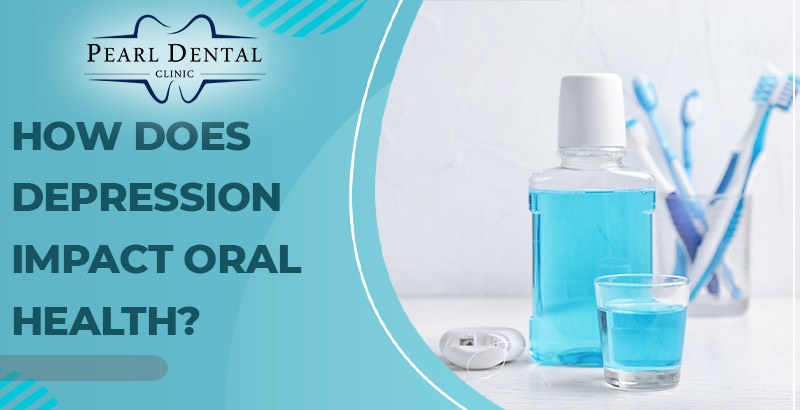Dementia is not a disease, but rather a group of symptoms characterized by a loss of memory, logical reasoning, and thinking abilities. The relationship between poor oral hygiene and dementia is strong and bidirectional. Poor oral hygiene can cause a decline in brain function and dementia, while individuals with dementia are at a higher risk of developing oral diseases.
When an individual’s oral health is poor, microbes that cause disease in the mouth can travel through the bloodstream and damage nerve cells in the brain. This injury has a chance to cause brain damage.
People with dementia often struggle with daily activities, including brushing and flossing. As the disease progresses, they may rely on others to help them maintain their oral and overall health. Some may be unable to communicate or may resist assistance, making oral care difficult. This can lead to gum disease and tooth loss if not properly addressed.

Guide to poor oral health and dementia risk reduction.
Dementia is multifactorial and cannot be fully prevented. Nevertheless, maintaining good oral health is an excellent way to ensure a gradual cognitive decline.
Balanced diet:
Maintaining good oral health is an excellent way to ensure a gradual cognitive decline. It is recommended to eat a balanced diet that includes fruits, vegetables, and whole grains while avoiding sugary and acidic foods and drinks.
Visit your dentist regularly:
Keeping your teeth and gums healthy requires regular dental check-ups and cleanings. It is advisable to visit your dentist at least twice a year to ensure good oral health.
Use mouthwash:
Mouthwash can be beneficial in eliminating harmful bacteria and freshening your breath. To enhance the health of your teeth, it is recommended that you choose a mouthwash that has fluoride.
Brush your teeth twice a day:
Utilize a soft-bristled toothbrush and fluoride toothpaste to brush your teeth for two minutes each time. It is recommended to clean your tongue as well to eliminate bacteria.
Floss daily:
Flossing is an important aspect of oral hygiene that should not be overlooked. It is recommended that one floss at least once a day, preferably before bedtime, to remove plaque and food particles from between the teeth and under the gum line where a toothbrush cannot reach.
Quit smoking:
Smoking is known to cause damage to blood vessels and reduce blood flow to the brain, which has been shown to increase the risk of developing dementia. It is important to quit smoking to reduce this risk and protect your brain health.
Treat dental problems:
Dental problems, such as cavities or gum disease, should be addressed as soon as possible to prevent the situation from worsening.
Consider dental implants:
Missing teeth can have a negative impact on your health. Dental implants are a great option to consider to improve your oral health and maintain proper nutrition. Additionally, dental implants can help keep your remaining teeth in good condition.


